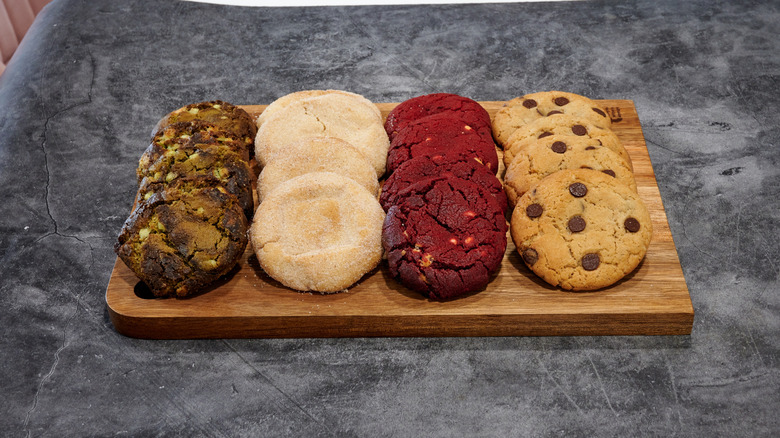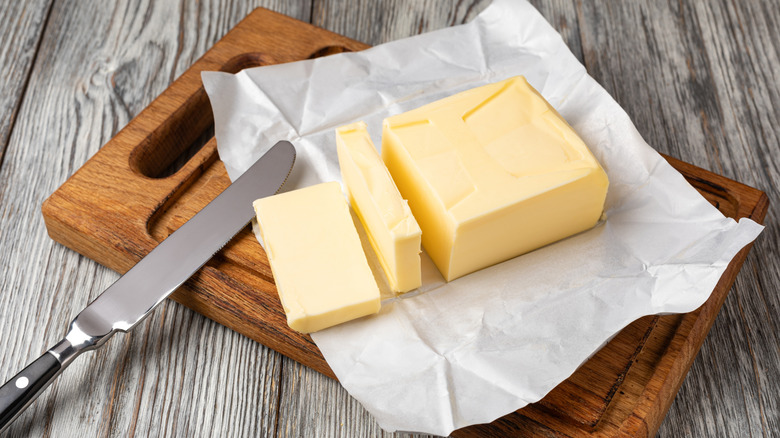How You Handle Butter Makes A Big Difference In Your Cookies
Cookies are a classic treat that come in practically endless options. Whether it's chocolate chip, oatmeal raisin, or any other delicious variety, there's a flavor for everyone. But achieving those flavors isn't as simple as you might think, as every ingredient in a cookie contributes to its nuanced flavor profile. One that is more important than you might think is butter, which can make a big difference in the final result.
When it comes to baking, there are three different forms of butter you'll likely encounter: creamed, melted, and browned. Creamed butter is softened butter that's been vigorously beaten together with sugar for several minutes. This step incorporates air and adds mechanical leavening to your cookies, helping them rise and become fluffy and light. Despite seeming similar, melted and browned butter are quite different. Melted butter is self-explanatory and gives baked goods a lovely fudgy texture. Browned butter has been cooked until the milk solids turn brown via the Maillard reaction, which makes cookies and other baked goods very flavorful.
Many cookie recipes call for creamed butter for that extra lightness and softness. Other cookie ingredients like cornstarch and baking soda do a similar job, but they can't do everything and, when it comes to cookies, some additional fluffiness is rarely unwelcome. That's not to say that every cookie calls for creamed butter, though.
Try different types of butter in your cookies
While creamed butter is the most common, melted and browned butter both have their places in a cookie recipe. Melted butter is great for fudge cookies, for example, and using it in other recipes can add a deliciously gooey thickness when done right. Try it in a chocolate-based recipe to bring out the chewiness of the chocolate treat. Melted butter can especially be a smart choice when making the decadent hybrid that is the brookie (brownie cookie) to enhance the respective textures of both of its parts.
On the other hand, browned butter is more about taste than texture. It does also lend denseness to cookies, but it really shines in bringing out flavors. If your cookies are a little bland, using browned butter can make them pop. Browned butter can especially shine in a caramel cookie recipe by simultaneously adding more caramel taste and making the existing flavor stronger. If you're adapting a recipe that originally didn't use browned butter, you'll likely want to add back a tablespoon or two of water, as the browning process evaporates water out of the butter.
At the end of the day, the ingredients you put in your cookies all come down to your preference. Cookies are meant to be enjoyed, after all. Don't be afraid to experiment with different types of butter, as well as essential steps like letting the cookie dough rest to improve flavor. You may find that your favorite recipe is better if you change it up.

